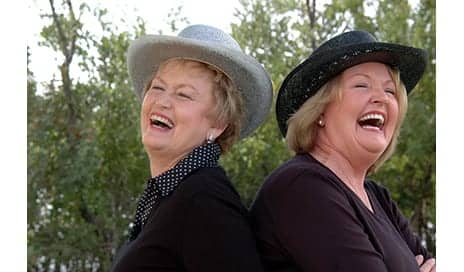Participants in a moderate-intensity group exercise program called LaughActive demonstrated improvements in their mental health, aerobic endurance, and outcome expectations for exercise, according to a recent study.
In the LaughActive program, participants choose to laugh and go through the motions of laughing while performing strength, balance, and flexibility exercises. Initially, the participants perform simulated laughter exercises and go through the motions of laughing. But as the program—which facilitates eye contact and playful behaviors with others—progresses, the laughter tends to transition to genuine.
Researchers focusing on this program suggest, in a study published in The Gerontologist, that both simulated and genuine laughter have health benefits.
The study included older adult participants who resided in four assisted-living facilities, where the LaughActive program was incorporated, according to a media release from Georgia State University.
For 6 weeks, study participants attended two 45-minute physical activity sessions per week that included eight to 10 laughter exercises lasting 30 to 60 seconds each. A laughter exercise was typically incorporated into the workout routine after every two to four strength, balance, and flexibility exercises.
Because laughter is scientifically demonstrated to strengthen and relax muscles, the laughter exercises often involved physicality in the muscles being worked in strength, balance, and flexibility exercises to prepare the body for exercise and help it recover, the release notes.
At program’s end, the participants completed a survey assessing their mental health, aerobic endurance, and outcome expectations for exercise. According to the release, 96.2% found laughter to be an enjoyable addition to a traditional exercise program, 88.9% said laughter helped make exercise more accessible, and 88.9% reported the program enhanced their motivation to participate in other exercise classes or activities.
“The combination of laughter and exercise may influence older adults to begin exercising and to stick with the program,” says Celeste Greene, lead author of the study and a master’s degree graduate from Georgia State’s Gerontology Institute, in the release. “We want to help older adults have a positive experience with exercise, so we developed a physical activity program that specifically targets exercise enjoyment through laughter.”
[Source(s): Georgia State University, Science Daily]





